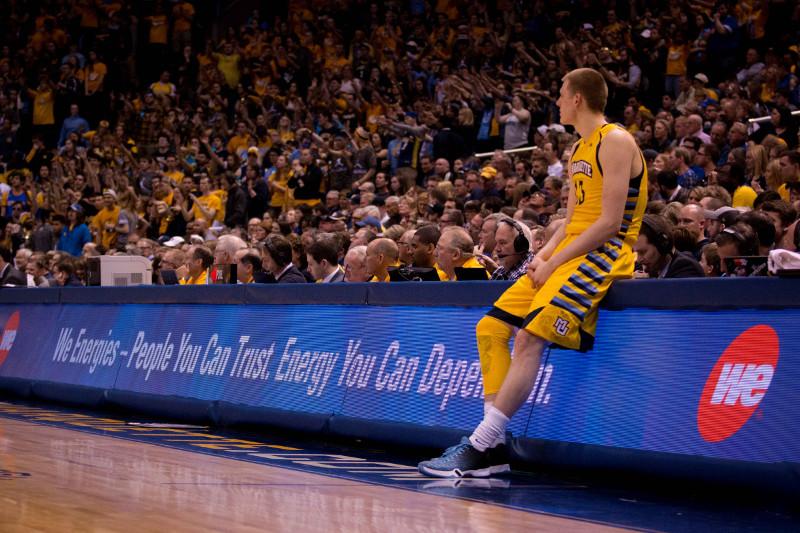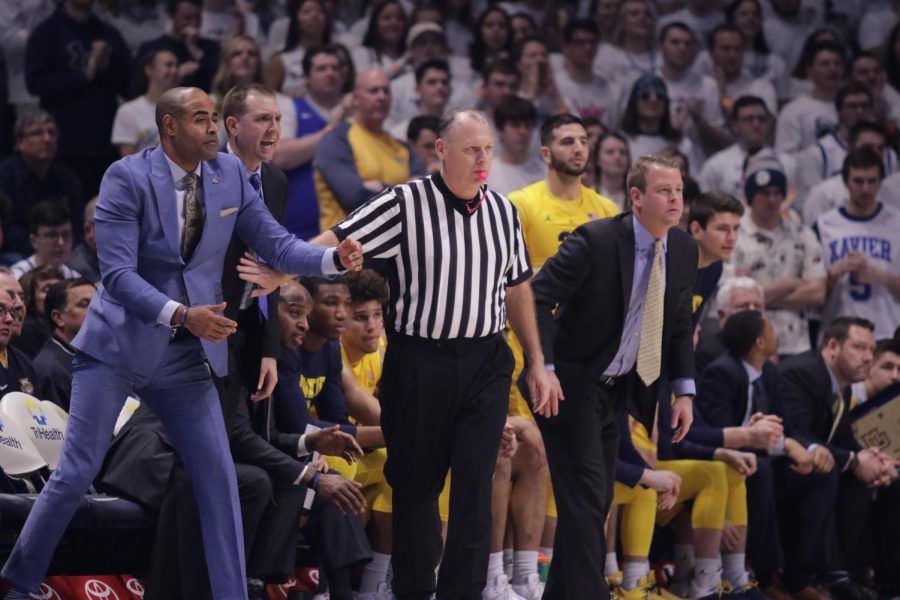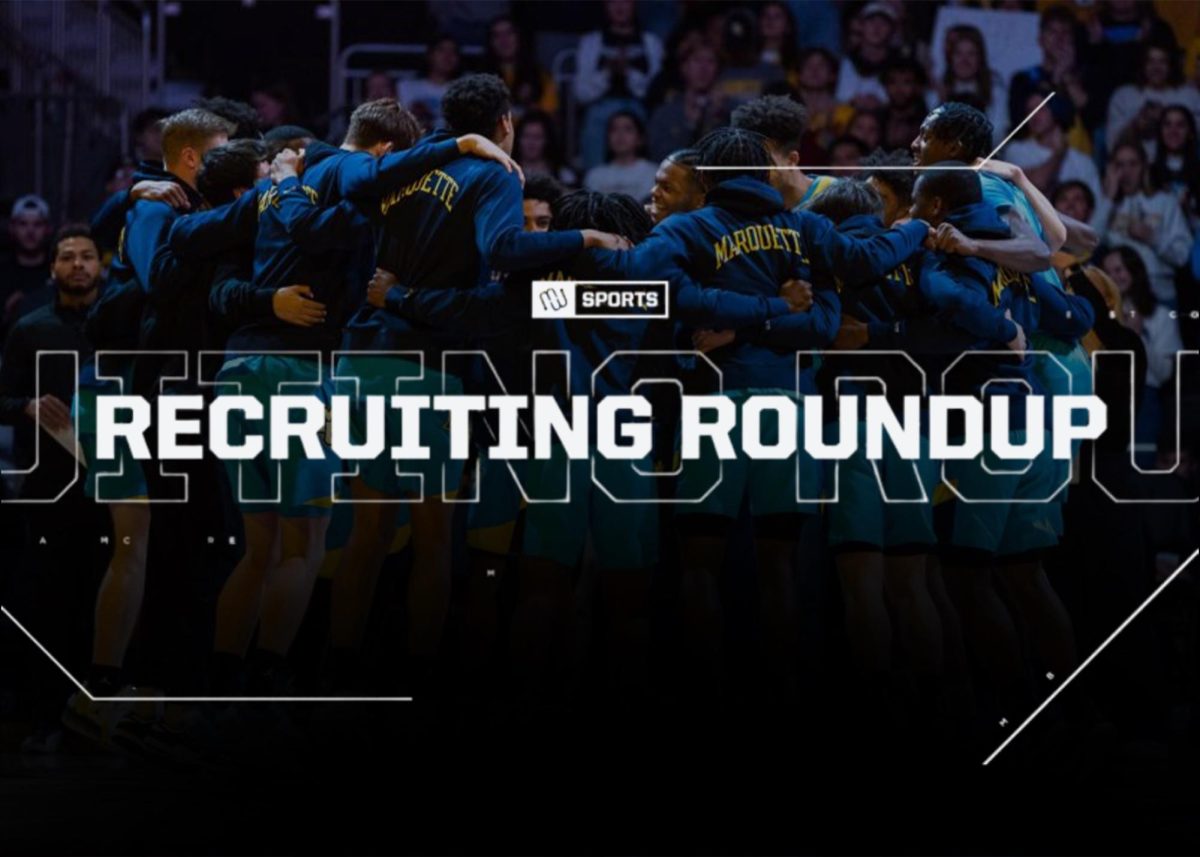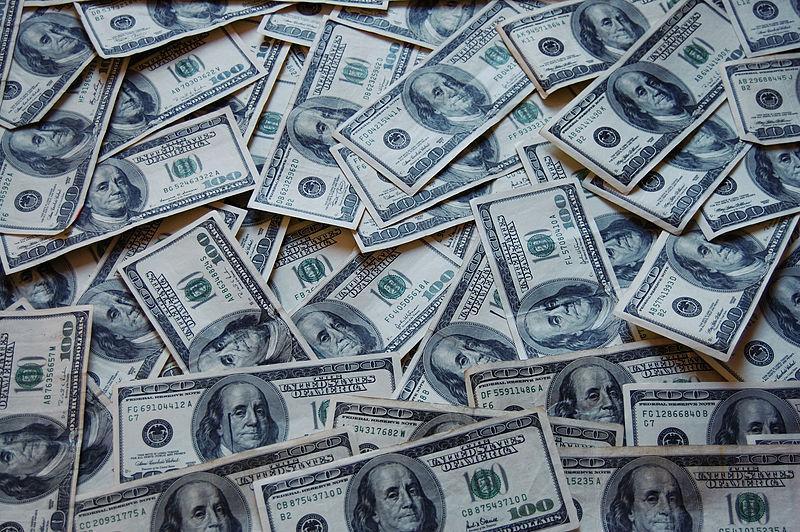Henry Ellenson’s departure has brought on a common one-and-done refrain: “Good for him; no reason to leave all that NBA money on the table.” But how much money is that, exactly? What can Marquette’s one-and-done superstar expect to earn in his first year? How about over the course of his first contract?
The first place to look for answers is the rookie pay scale. Like most professional sports leagues, the NBA caps the amount of money that a team can pay a rookie during his first contract. Each pick in the draft corresponds to what is known as a “scale amount,” or the value that the NBA deems a player taken at that pick to be worth. Teams can pay as little as 80 percent of the scale amount or as much as 120 percent. It’s usually closer to 120 percent for players taken earlier in the draft, like Ellenson probably will be.
In order to determine what the scale amount for Ellenson will be, we’ll look to the Wire’s “Henry Ellenson Stock Watch,” which has compiled several predictions for where he’ll be taken. This may change quite a bit between now and draft day, but the 8th overall pick seems like a good estimate for now (and it might even be a tad conservative). According to the pay scale, the 8th pick is valued at just more than $2.3 million dollars in base salary. For context, that is over 80 times more than the most recent estimate for America’s median net compensation. That salary gets a modest increase in year two, to just under $2.5 million.
If those dollar figures sound like a sweet bargain, then the security that comes with the contract is even sweeter. All first-round rookie deals are completely guaranteed for the first two years. Even if Ellenson never sees a minute of court time, he will still collect a gross two-year base income of just under $5 million.
Not all of that money will go to Ellenson, though. As lovely as a world without taxes would be, everyone still has to pay them. Ellenson’s taxes are extremely tricky because people of such large net worth tend to have varied assets, each of which has a different way of being taxed. In addition, state income taxes are incredibly difficult to calculate for athletes because they pay a special “jock tax” on earned income in different cities. Since each game played on the road is subject to a different tax rate, it is beyond a non-professional accountant’s acumen to total that up.
Therefore, we’ll just focus on the big one: the federal income tax. It should come as no surprise that most of Ellenson’s total income – everything over $415,050 – will fall in the highest tax bracket and be taxed at close to 40 percent. Assuming an unrealistically simple tax filing of no dependents and no claimed deductions, H&R Block’s income tax calculator assesses Ellenson’s burden to be around $900,000. This leaves him with roughly $1.4 million of his original salary.
This calculation is about as far as educated guesswork and mediocre math skills will allow, so there are a lot of factors not accounted for. State income tax, sales tax and “jock tax” will all take another bite out of Ellenson’s paycheck.
Fortunately for Ellenson, there are a ton of aspects working in his favor, starting with the fact that his agent is not allowed to take any commission off of his rookie contract. In future deals, the agent gets to take up to 4 percent of any paying deal. In addition, Ellenson will have the opportunity to do commercials, endorsements, paid appearances and other non-basketball moneymakers. Almost every NBA player has a sneaker endorsement, and that alone can be worth up to $700,000 for a marketable lottery pick like Ellenson.
Keep in mind that this does not count investments made in the stock market, real estate, money market funds or any of the other financial instruments that a smart money manager that knows how to invest in stocks might put in Ellenson’s portfolio.
In the intermediate term, Ellenson’s financial future gets a little murkier. After the first two guaranteed years of a contract, years three and four are team options. If a team decides it wants to keep the player in question, they may do so at only a slightly increased cost. If the team decides to cut ties, it may do so at no further expense, at which point the player enters free agency.
There is no better time to be entering the NBA. The league’s new TV broadcasting deal, set to begin next year, is worth $24 billion, almost three times as much as the current one. Franchise values have also tripled over the past four years. Thirteen of the league’s 30 teams are estimated by Forbes to be worth at least a billion dollars. The salary cap is set to go up drastically and teams will have more money than ever before to throw at players. In four years’ time, Ellenson’s annual earnings could be in the tens of millions.
So how much money is Henry Ellenson going to make next year? The best answer, at least as far as base salary is concerned, is probably in the area of $2 million to $2.5 million before taxes. Once he pays all those off, he’ll probably be left with somewhere in the neighborhood of a million dollars, plus any non-basketball revenue. Assuming his deal lasts for the full four years, his post-tax basketball salary will be fairly close to $5 million.
Somehow, those numbers make an 8 a.m. Communication Studies class seem less appealing.











